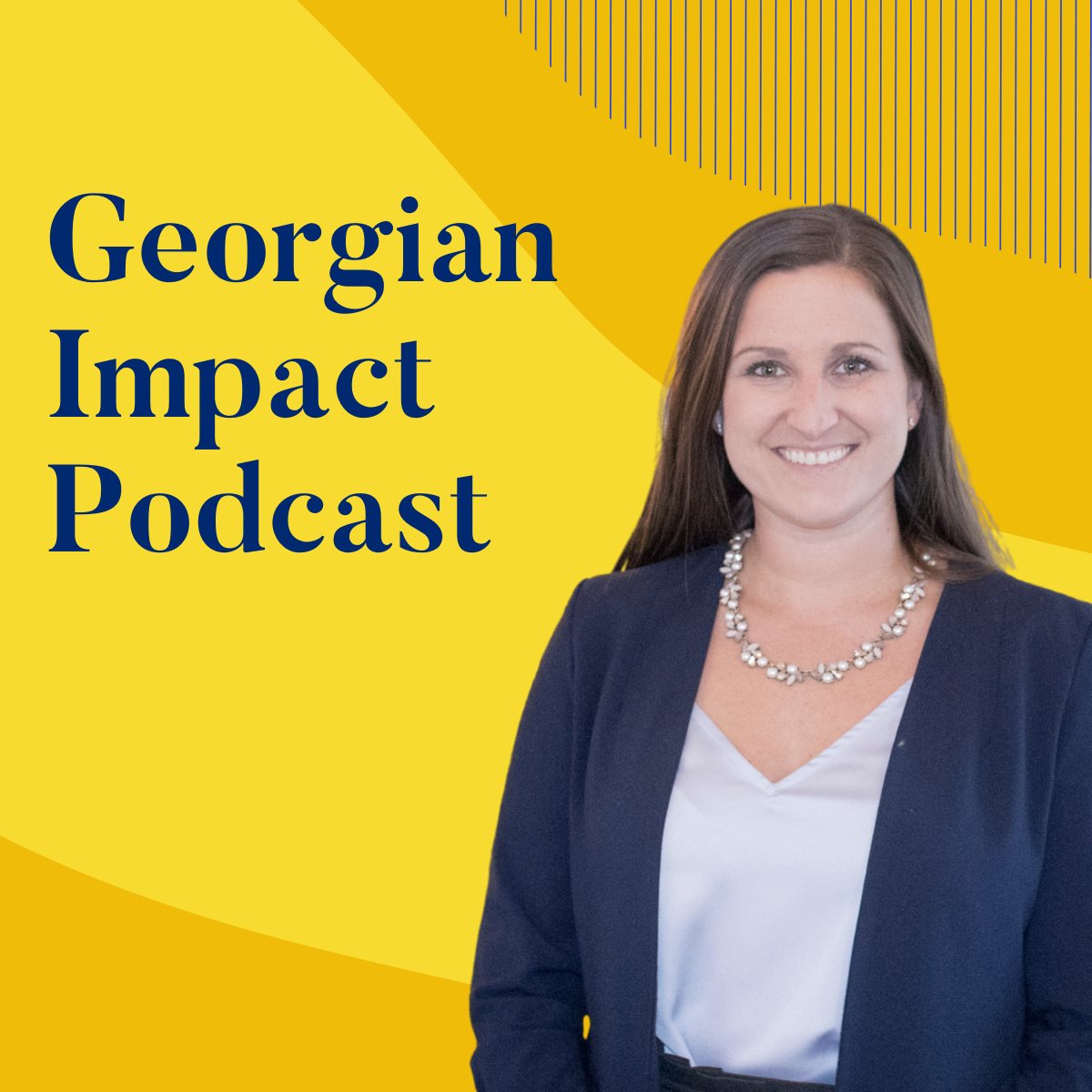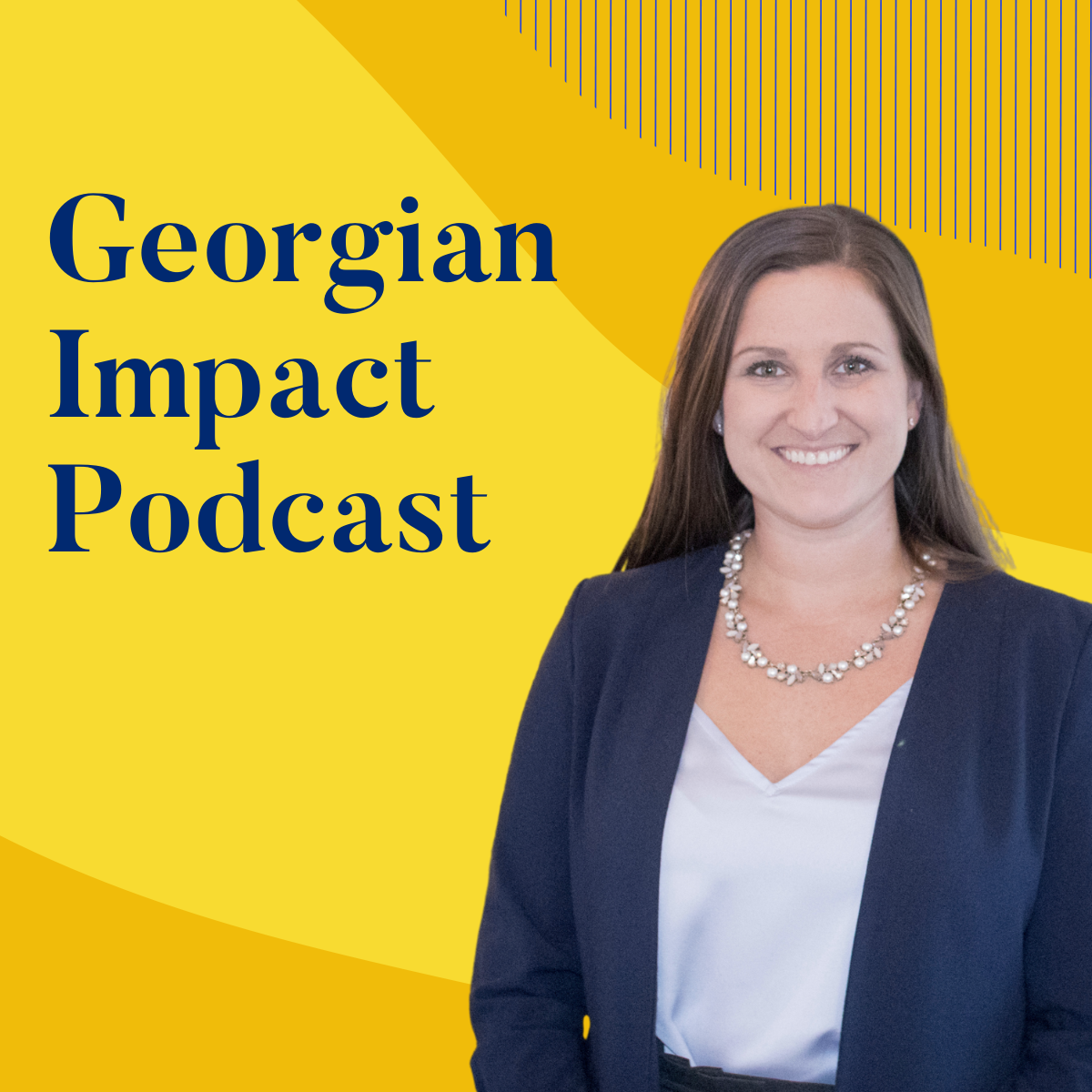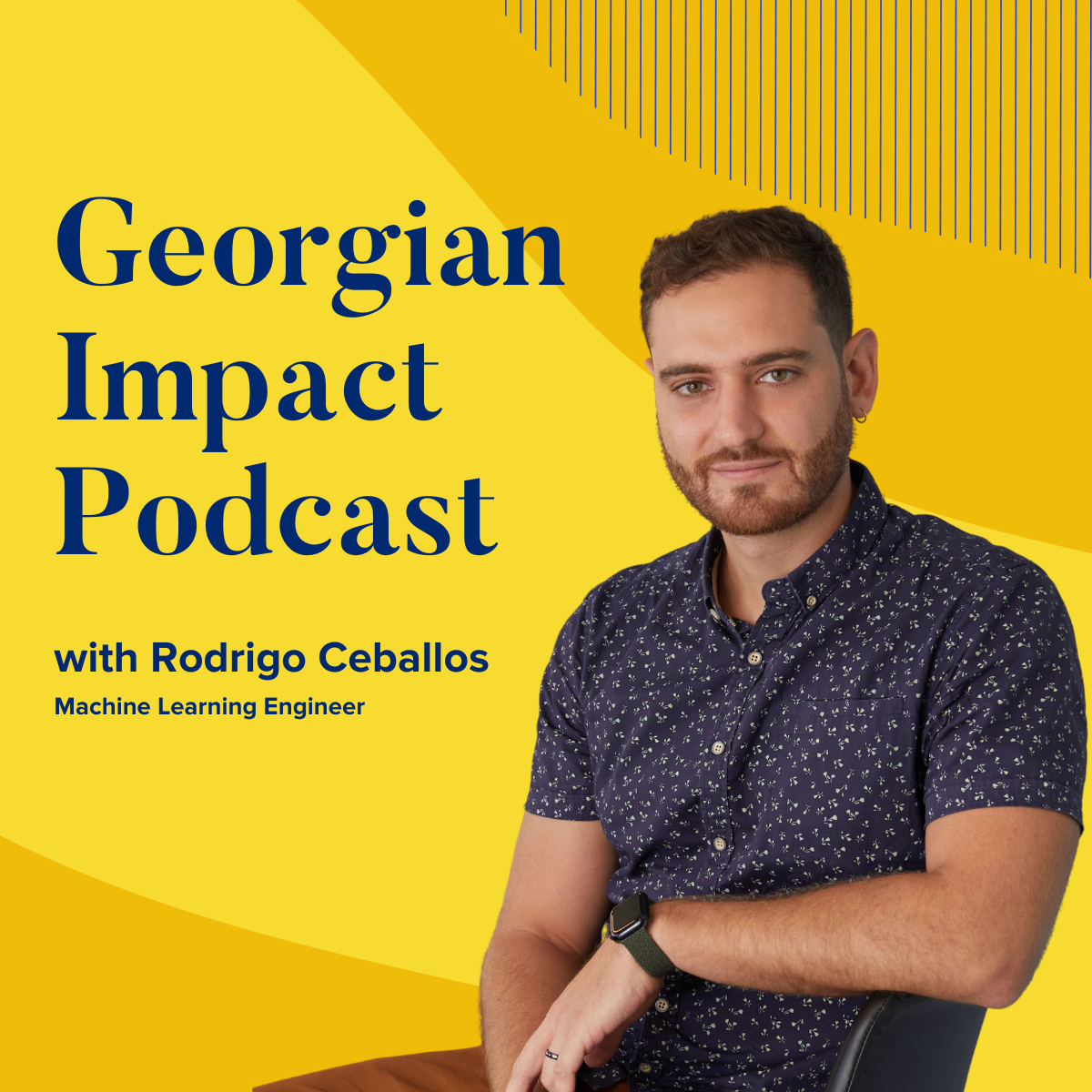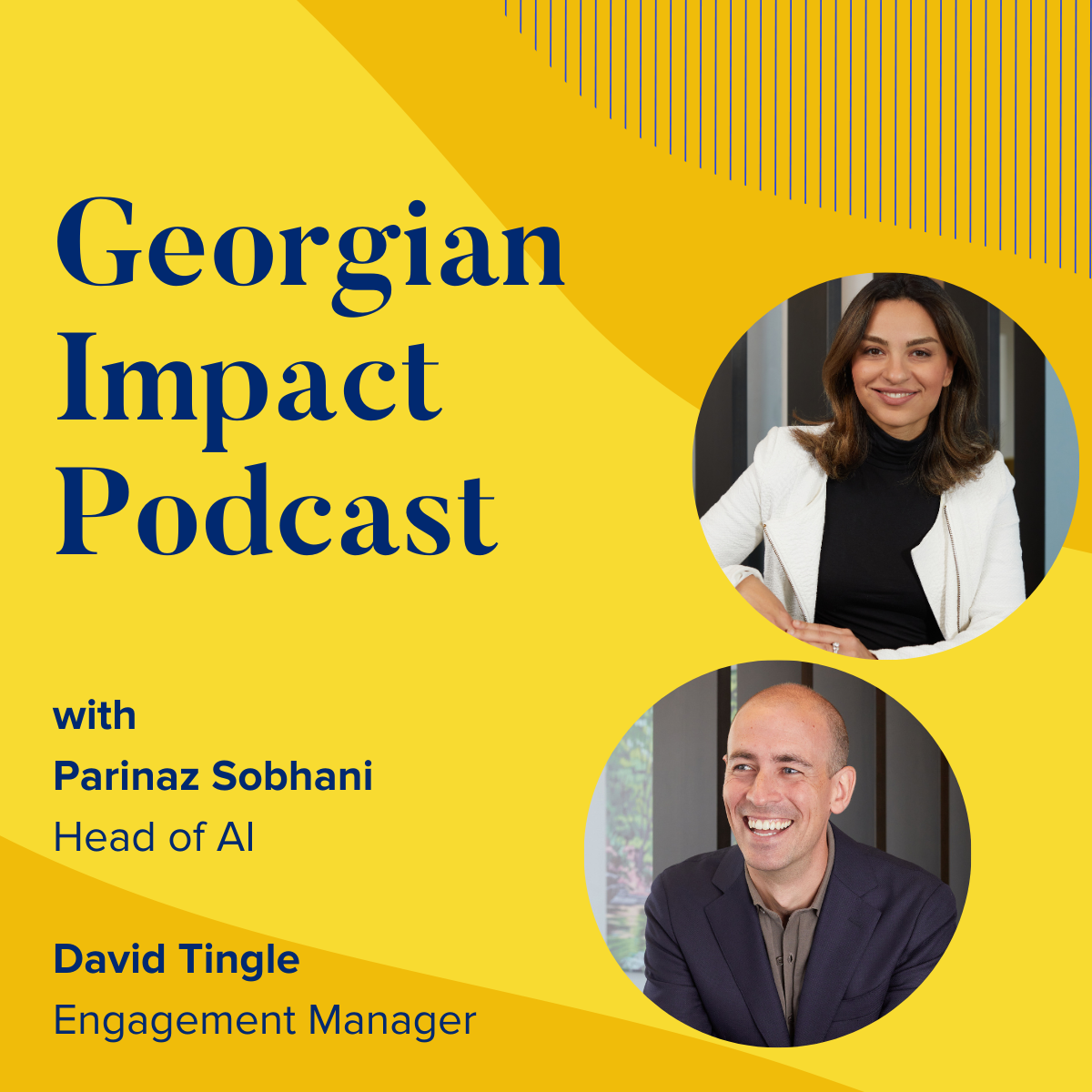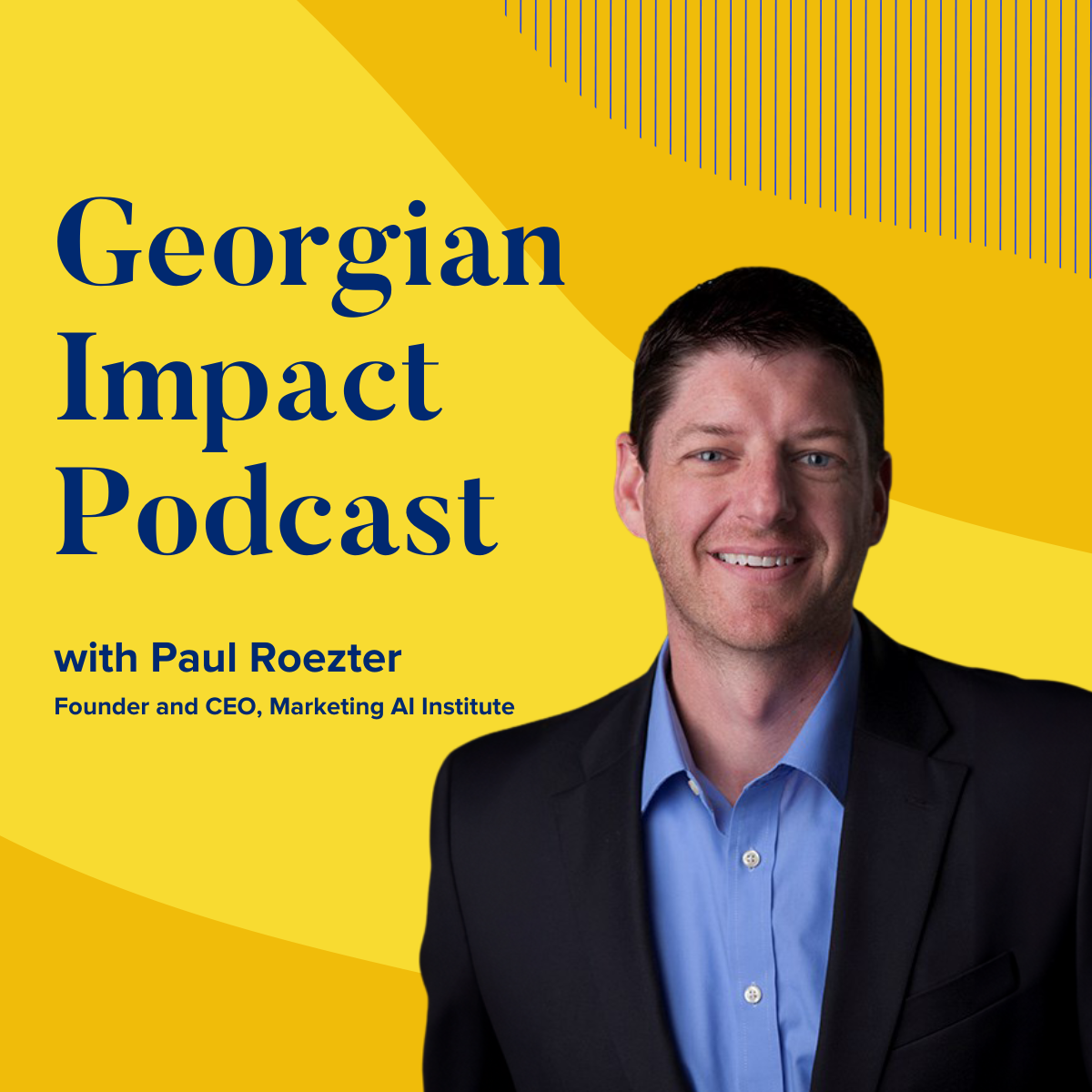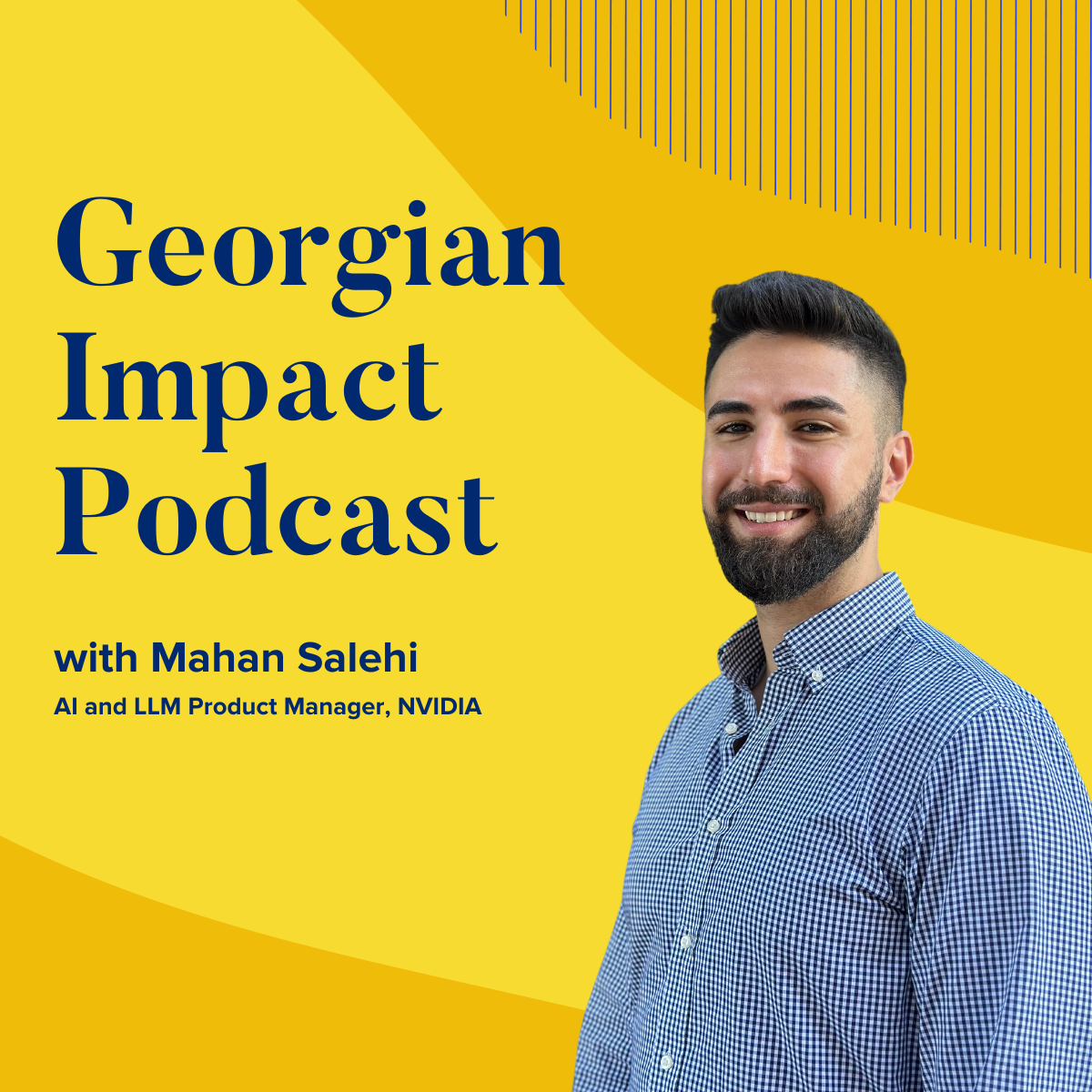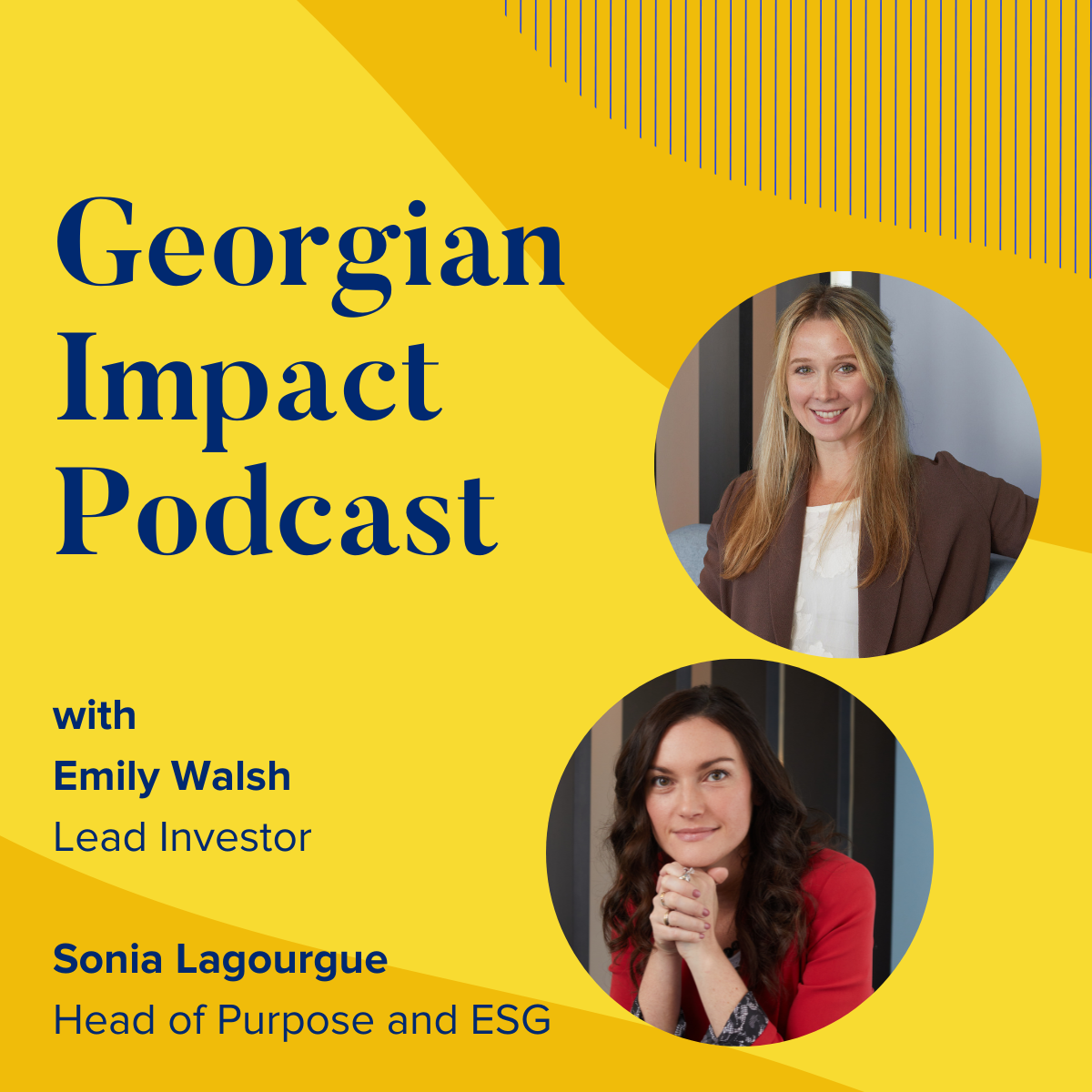Attracting Top Technical Talent with Kathryn Christie
- 0.5
- 1
- 1.25
- 1.5
- 1.75
- 2
Jon: Nice to meet you. I'm Jon Prial. I'll be interviewing you today for the open position of lead data scientist. Whoa, do I have your attention? First of all, who's more prepared? The candidate or me? And this is a tough seller's market and tech jobs are in huge demand. So what am I, the interviewer, looking for? Do I have a sense of how my company compares to other companies that this candidate might be looking at? Am I thinking about the skills needed now, or what are the needs going forward as my company grows? And am I just digging beyond the basics of my questions? Hiring the right technical candidate for your company couldn't be more challenging than it is today. So, I sat down with Kathryn Christie, Georgian's Head of People, to understand what it takes to determine who's right for your company and how to get that person to," yes." I'm Jon Prial and welcome to Georgian's Impact Podcast. So Kathryn, I've always wanted to ask how do those once novel perks matter, ping pong tables, beer carts, lunches, does it really matter? Has the work at home ethos changed all that stuff?
Kathryn: That's a great question. And the way I like to think about these perks is they've really become table stakes. Most organizations, certainly ones that are attracting top technical talent, have the lunches, they have the great, beautiful offices. They've got, everybody gets a top of the line Macbook or whatever technology they need. And it's not something that's really differentiating any more. And it could be an attraction technique, certainly to get people to look at your organization or see your company with the likes of the big tech companies that offer this, but it's never a retention tactic. And whenever I think about building great teams, I want to figure out how I can build great teams that will stay and perform. And if we want to retain them, it's not beer o'clock, it's not lunch. It's the intrinsic motivators that really get people excited to stick around.
Jon: I remember when a friend of mine toured me through the Google offices in New York City, and the mindset I caught, and he actually was part of that, he stayed through dinner because it was free and then, he took a later, less crowded train home. So, now you're getting somebody working more than eight hours a day, but I never was comfortable that food is the motivator for someone to work long hours for you.
Kathryn: Definitely not. It's great if there's food around, but what we really want is great output. So, I'm not too worried about how long people are working, but if they're engaged and motivated and feel like they're doing work that's important, they're going to outperform anybody who's staying late just for dinner.
Kathryn: Companies seem to be moving back the return to the office date. A balanced between work in the office and work from home... I've got this cool vision of like our team being, at least being in the office one day a week. And then, a mixture of people showing up on another day. How have you thought about evolving the value of working at home and then how you want to make that change when the office kind of reopens again?
Kathryn: Instead of thinking about recreating the office, it's how do we create a new culture around this combination of being in and out and potentially in different time zones? And how do we leverage tools and technology to do that effectively instead of being this nostalgic for what used to be, and trying to just rebuild that in a way, my emphasis is all about how do we create a new normal and a new culture around how we do great work in more of a hybrid environment.
Jon: So, let's talk about the evolution of culture. I like it. I mean, maybe Google model is a good or a bad model in terms of what's in the office and ping- pong and things like that, which may is fun and work, but now you're home and you're working and you have this shared vision kind of thing. So, how do you think culture is going to change?
Kathryn: I think culture is going to be much deeper and there's going to be a magnifying glass on the true values and the true culture without the fluff, without the ping pong tables and the ice cream truck that shows up on a hot day and whatever those things are that we do to help employees have the fun part of work. We're going to get down to the good stuff, the real values, how we actually make decisions, what trade- offs we make, what we prioritize as it comes to our values without relying on... Okay, maybe we made a trade off there that wasn't so great, but let's throw a party and try and offset it. I think we're going to get to a place where we really need to take culture seriously.
Jon: It sounds like maybe the way to pull this off, and it's part of culture, but it's even more than that, is that absolute clear transparency of responsibilities, things cascade downhill, why are we making certain decisions. Companies always give lip service to being clear on that because you're not talking to somebody in the kitchen and getting a message you've got to figure out other ways to more formally figure out how to be transparent is I'm not sure if I'm saying that the right way. What are your thoughts?
Kathryn: There's no more osmosis of seeing a decision get made or bumping into someone in the hallway and getting an update on something that is relevant to your work. We need to start looking at the sort of network effects of our decision-making as an organization and make sure that message is spread. It's not the what for me, it's the why? Why did we make this decision? Why did we come to that solution? Why are we asking employees to commit to that? Because that's what really perpetuates culture. It's not okay, this is what's happening, everybody goes. It's this is why it's happening and why it should be important and prioritized.
Jon: I always felt as a manager, my job was looking left to right at my level. See what's happening and pass that down to employees. And I never wanted employees to feel like an individual was in a silo. Each employee had to look left and right, and communicate and talk. I guess that this work from home kind of is a paradigm shift. We have to really force that even more so.
Kathryn: And engineer opportunities for it to happen as opposed to just expecting it's going to happen. There are a lot more barriers to that looking left and right occurring when you're not to the left and to the right of people. How do we engineer those moments for people to have space to share what's happening and understand how the different functions are working together and what North Star we're working towards.
Jon: Companies have personalities, trying to attract people. We have smaller companies that we talk to that are really looking to engage. And we're going to talk more about how to attract people, but what do they have that these larger companies don't have? We've talked about table- stakes. We're beyond all that. Maybe the culture is a differentiator or not. What are your thoughts?
Kathryn: I think what gets me really excited about working at a small organization, particularly when we think about our technical talent, is looking for and messaging towards people who are excited to buy into an idea. They're excited about buying into what you're building and being a part of building that. And to me, that's the selling differentiator. If I'm selling against somebody who's interviewing at Google. I'm saying you're going to be part of the build of something that we want you to believe in. And here's why you should believe in it, and here's the problem it's solving. And that to me is a much easier way to get someone engaged in a process and attract them to our recruitment process than trying to say," Oh, our benefits are the same." Or," Our work hours are better." It's really that higher level and engaging their excitement around being a part of something that's solving a big problem.
Jon: Technical people are going to jump into a product. You're actually taking the product and a higher-level view of that as to how this product is part of what this company is. The product matters, but the vision matters more. So, you're putting challenges on the marketing team and the leadership team to make that crystal clear.
Kathryn: And there are huge benefits into combining HR and marketing. I talk about it a lot, but they align very, very well. And if we want to get candidates excited about what we're doing, we should be working with the marketing department to think through what that messaging is and how we create that understanding of the bigger vision at every touchpoint in the recruitment process.
Jon: So, in my old days, you would join a company for life and then things evolved. And now, it's a different world that people bounce around. They have multiple careers within their lifetime of work. At the same time, you're looking to hang on and retain people. How do you strike that balance of bringing in talent that somebody views Georgian as a stepping stone versus someone that really is in for the long haul? And does it matter to you?
Kathryn: There are two things that I really think about when I think about retaining people for the long haul. The first is true deep alignment with our cultural values. I think that is one of the best ways to assess if somebody really believes in what we're doing and is going to love the decision making and how things go throughout their employee life cycle at the organization. And the other piece is the work environment. This might be a little controversial, but oftentimes people who are really interested in working at a large company like a Google or a Facebook might actually not thrive in a startup scale-up work environment because they're completely different. And they ask for completely different types of work behaviors. There are different expectations. Structure versus less structure, more ambiguity. So, I often really emphasize understanding how people like to work in their environments before I look for other skills because that truly is a huge indicator of retention.
Jon: So, finding a cool job that doesn't fit into the right environment, you're doing that in the screening process. You may say, this is a great job. You're a good person for this job, but you may not want them based on what you're gleaning out of this?
Kathryn: Absolutely. And I'm honest with them. I'll say," I really think you would thrive in a place that has a ton of structure, really well- defined roles." And I sort of coach them through that.
Jon: So, back in the day, I don't know, maybe not that many days ago, there were data science master programs, PhDs were hot, and they're still great and we love them and we hire them, and it's an important thing, but there are other ways to learn things now. There are online certifications and courses that people take. And I think it's fair to say some of these more junior candidates might be very valuable. How do you find the real deal in terms of understanding people's technical skills? Is that your job? Did they make it through you as a gatekeeper and then pass them over to someone else? How do you figure this out? Because I think the field of candidates is far more varied than it used to be.
Kathryn: The biggest hurdle for any company in this is getting over the bias. So, really training everyone to understand that people who don't have those letters next to their name or who aren't coming from a specific institution, whatever that looks like, can still have the skills to do the job. And for me, that's level one and getting everybody over that hurdle to start looking for the work that people have actually been doing, as opposed to the education they have, or the letters next to their name. And then, the next piece is to find as many opportunities in the process of evaluating a candidate to get objective data about their skills. There are tons of great tools out there to assess these kinds of things. And actually the number one predictor of success, the job is getting them to do the job. Shock. Find a way to get them to do the job, sit them next to someone who would be their teammate, have them solve a technical problem together, and really get that job sample from them. So, they get a chance to show you their skills and you're not just guessing based on their background and you get to see them in action.
Jon: So, during the interview process, it's not the goofy... I'm not sure they even do it anymore. Goofy questions that Google would ask on how many pins would sit within a basketball. I'm making this up, but they like the goofy-
Kathryn: How many windows are in New York City?
Jon: Yeah! Yeah! That's much better. I want to work on that. But hey, I'm... Thanks for that. I'm not going to sleep tonight, but I assume that was to get critical thinking and basing what you're saying, do a real project. I think you're looking for rubber meets the road technical prowess that you're now looking for under the auspices of someone on the team.
Kathryn: Mm- hmm( affirmative).
Jon: They're not... Or are they going off alone? How does that fit? How does that work?
Kathryn: So, there's usually different... It depends on the job. So, I always go back and say, what are they going to do in a given day? Will they be working independently? Okay, let's get them to do an independent technical project. Will they be doing project work more often than that? All right, then we're going to get them to pair up with somebody on the team and solve a problem. Will they need to interface with different parts of the organization, different levels, potentially customers? Okay, then we need to have a presentation aspect of this. And really getting crystal clear on what the performance expectation is for them. And then, feed that right into how you evaluate them throughout the process.
Jon: You're going to give them an apt project for them to work on under the right inspector, which is not you.
Kathryn: Absolutely. Not me.
Jon: You're probably not the technical inspector.
Kathryn: No, I'm the cultural inspector.
Jon: I love it. I love it. We look at companies with a number of different lenses. And one of them is the maturity level of machine learning team. We rate companies as they're getting started on machine learning. As they progress through exploring and then building and then scaling. And of course the grand finale for any companies executing at scale. So when the people listening are thinking about hiring, how well do they have to understand where they are in that maturity model?
Kathryn: Critical to know where you are, because that's going to directly translate to who you're looking for now and who you might be looking for in the future. And that could be the same person. If you believe that they can do what's required now from a technical perspective and then evolve into what might be necessary at a later date. Or you look for people who can execute now, and then you recognize you're going to add to the team at the next stage of maturity. But what I love about that maturity framework is it's a framework. So, you can keep going back to it. And it's not just okay, here's where we are at this moment in time, off we go, let's build our teams. I always encourage people to keep going back. We need to add people. We need to add capacity back the framework. Where are we from a maturity perspective? How does that translate into who we're looking for next or how we have to up-skill or reallocate our current teams?
Jon: And if you're hiring the first person for getting started, you got to have some deep skills. It's not clear that that person would be the leader long- term and it's not clear that that person needs to be or wants to be the leader long-term.
Kathryn: Exactly. Exactly.
Jon: But you want to know that going in. You don't want to just pick someone. You really want to map your company vision, your maturity evolution vision to the team structure. You don't want to... This is not a random person hire.
Kathryn: And if you think about the... Your percentage of your team, at this point, it's a hundred percent of your team. So that person we really want to focus on getting it right in that moment. And then as we add, we're changing the proportions of the importance of the people. But every time we want to make sure that we're increasing the team skill and ability to deliver at our level of maturity.
Jon: When you're talking to folks, do you have a vision of where they're going to slot into or that'll come over time?
Kathryn: That's an excellent question. And I see it as sort of looking for some of those raw ingredients. So, depending on where we are and what we're trying to add to the team, let's find someone who can execute now, but do they have some of those raw ingredients that I could potentially see them moving on the product side? Do they have a pretty comfortable understanding of the business side of the conversation, even if they don't have an MBA, but if I ask them, how do you think adjusting this from the technical side might impact the business? And they can think through it. It might be raw, but they can... I see that in them. That gets me excited because then I know I have someone who can execute now and I can invest in to build on that path. But if I already have somebody on the team that has those raw ingredients and I'm comfortable with that, then I'm not as focused on it in the interview process. And I think that's something that gets missed a lot. When we go into hiring, we sort of ignore what we already have. And we're just looking for what we don't have. And we forget to go back and say, okay, what balance do we have on the team right now? What paths do we see people taking? And let's take that all holistically into who we're looking for next.
Jon: Would you consider at some point somebody doing... It's only a new term to me, but I know Georgian does a lot of it. It's the secondments where somebody may be leaving the technical team to come spend a little time, six months in a real marketing or sales team. Is that a value?
Kathryn: Absolutely. And I love thinking in those ways because if we want people to stick around, long- term giving them those opportunities to really enrich their understanding of the business is not only great for us, but it's great for them because they can better understand how to make decisions in their own day and how that impacts the business as a whole. It's actually one of the key tenants of job satisfaction is this concept of variety. And variety in their day, but also variety in their career at an organization. That's something that I would love to see even more of in the startup scale-up environment. And there's more flexibility with the smaller organization to be able to do that, but then there's also less capacity to cover off that person if they leave a team. So, I think it's finding that balance of if we're going to lose somebody on the data science team because they're going to do a secondment in operations, how do we backfill that capacity? And do we have the bandwidth to do that?
Jon: There's this beautiful career path discussion... We talked earlier on about aligning with values and culture. Talk to me more about how you figure that out. What kind of questions are you asking? Obviously, it's not the number of windows and buildings in New York City.
Kathryn: Yeah, I haven't used that one yet. Although, I think it's pretty funny. I love getting candidates really comfortable, and we're not hiring professional interviewers. And it's really hard to get a good sense of who somebody is at their core and what they value if it's a very stiff environment. At Georgian, we're pretty informal anyways, but we really like to make it conversational. And then, we have cues that we look for that align with the behaviors that make our culture great. So, an example would be one of our cultural values is being thesis-driven and having a long- term view. And to me, those two are all about every day when I make decisions or when I'm looking for something to learn, I act as if I own Georgian and I am the CEO of Georgian. So, when I'm asking questions to a candidate and I'm having conversation with them, I'm looking for those indications of the higher-order thinking. Not what's in it for me, but what's in it for the company and how do I impact that? And how am I a part of that? Right down to we asked them what do you do if you show up to the office and there's a sink full of dirty dishes and the receptionist is sick? And some people literally say I'd call the building to get them to come clean the dishes. Well, that's not someone we want, cause they're not going to act like an owner. I want someone to run in there and say," Oh, we might have visitors coming. Office needs to look great. I'm in there cleaning the dishes."
Jon: We're not having this conversation because we're talking about hiring one person. We're talking about building and growing a team as the company evolves. How do you get there? Is it advisory board help? You call other peers? What do you do? How does that happen?
Kathryn: The easiest way to build a really healthy pipeline of great candidates is to build what I call a recruiting organization. And all that means is every single person in your company is a recruiter. And they are trained on how to do that well. And they know what quality looks like because if we're going to have everybody out there telling the story of our organization and getting potential future candidates excited about joining our teams, we want them to be crystal clear on the message and that sort of vision message and the big picture message that we want everyone to understand. And we want them to be able to quickly say this person's going to get through the process or not. And we do that by sharing our cultural alignment scorecard with everybody. So, everyone knows, this is what we look for. This is how we look for it. And these are the red flags that send us running. And then, I know I've got a sea of recruiters out there every day when they're talking to their friends, anyone in their networks, who constantly have that hat on of is this person aligning with the scorecard? Do we think they might be a great addition to our team?
Jon: We at Georgian talk a lot about the importance of trust to companies. And of course it's often about companies to their clients, but it is also intra-company. How does trust show up during the hiring process?
Kathryn: Well, everywhere, everywhere. And I think it's so critical for just what's core to Georgian and what's important to us, but also giving us the comfort in knowing that we're hiring trustworthy employees and we're hiring employees who are really going to embody that. And when I think about trust, it's not this one-time thing. We don't just build it then it's there. We're constantly cultivating it and growing it and maybe shrinking it. And we're always trying to put money in that trust bank. I'll give the example of a candidate experience. If I am true to my word with a candidate, no matter how long the process takes, they're going to say that was one of the best recruitment processes I've ever been a part of because what really falls apart in most recruitment processes is broken promises. We say, we'll get back to you on Friday. We don't get back to you on Friday. We'll say, we're looking to offer you the job then we come back and say," Oh, we didn't get the headcount approved. We can't give you the job." If we're going to bring someone on, we better build trust with them in us trying to give them a job. And if we don't do that, they're not going to trust the organization when they join. So, really showing them that we don't just talk about trust, but we do it. And we get on the phone. And if we tell them we're going to get back to them, we get back to them. And we take those moments to really build that trust with them and ask for it back. So, when they owe us something, we trust that they're going to give it to us. And to me, that sets us up on a perfect foot to really continue that trust relationship.
Jon: Very cool. So, just to wrap it up, let's leave our audience with just something to ponder. And since we're done with the windows in New York City, why didn't you give me one question you might ask somebody about say communications and collaboration. I guarantee you it's going to be an open-ended because I know you well enough. It's not a yes, no question. Give me an open-ended question that just might be cool and people are going to hang up on this podcast and go," Hmm. That was a good one." So, what do you got for me?
Kathryn: I'll give a Mads a nod on this one because...
Jon: Mads is our CTO.
Kathryn: Yes. He and I sort of crafted this one in flight, in an interview. But my absolute favorite question to ask is how do you define ownership?
Jon: Ooh.
Kathryn: Full stop.
Jon: So, we've given away our trade secret. The next employee is going to come in, next potential inaudible will nail this answer, but I think you've got another bunch of questions you'll be asking along the way. Kathryn Christie, this is a pleasure, our Head of People. I really enjoy talking to you. Thanks for giving us the time.
Kathryn: It was an absolute pleasure. Thank you so much.
DESCRIPTION
Who is more prepared going into an interview, the candidate or the interviewer? Tech jobs are in huge demand, so as the interviewer you need to understand what you are looking for. How does your company compare to other companies the candidate may be looking at? Are you focused only on the skills needed right now, or are you focused on what you will need as your company grows? Hiring the right technical candidate for your company couldn’t be more challenging than it is today.
Today's Host

Jon Prial
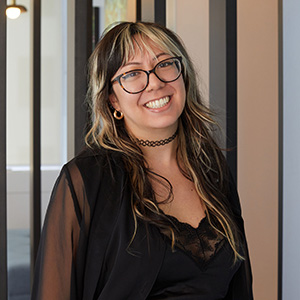
Jessica Galang
Today's Guests
